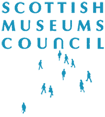
Scotland’s pioneering role at the forefront of modern medicine is to be promoted to local, national and international audiences as one of the first of five projects to receive funding from the Regional Development Challenge Fund it was announced today (Wednesday 6th October).
The Scottish Museum Council and the Scottish Executive have awarded five projects grants of up to £100,000 annually for three years in the first round of awards. The initiative launched last year aims to encourage the development of partnerships at regional level across local authorities and between museums of all types and other related agencies.
Creative projects proposed by Glasgow City Council, Dundee City Council, East Lothian Council and Scottish Borders Council have all been given the green light (See Editor’s Notes).
Patricia Ferguson, the newly appointed Minister for Tourism, Culture and Sport commented;
"I am delighted that the Regional Development Challenge Fund is proving successful. The five projects, to date, demonstrate the willingness in the museums sector to create meaningful, sustainable partnerships, which will benefit communities in their areas. I hope future projects will fulfill the scheme's aim and provide benefits to the museum sector across the whole of Scotland.
"The Scotland and Medicine project, in particular, will promote medical and health collections not only locally but also to national and international audiences."
Led by the Royal College of Surgeons of Edinburgh, The Scotland and Medicine project will enable Scottish Museums to deliver initiatives that raise awareness of Scottish medical/health collections.
The initiatives include the production of an Online directory of Scotland’s medical collections and connections; regional information leaflets and a Scotland wide touring exhibition Anatomy Acts that will combine new work from leading contemporary artists with objects from museums throughout Scotland.
The first phase of the project coincides with the 500th anniversary in 2005 of the Royal College of Surgeons of Edinburgh, the oldest medical incorporation of its kind in the world, and the 200th anniversary, in 2007, of the Hunterian Museum and Gallery, in Glasgow, established through the bequest of East Kilbride born William Hunter, one of the most prominent anatomists and collectors of the18th century.
Dawn Kemp, Director of Heritage of the Royal College of Surgeons of Edinburgh said:
“It’s wonderful news, Scotland has played a pivotal role in the history of medicine and continues to make a significant contribution in developing greater understanding of the human body. We experience life through our bodies: our senses, our emotions, our minds yet fascination and wonderment are often counterbalanced by fear and anxiety. Anatomy and medical collections held in museums, libraries and archives throughout Scotland are an immense, underused resource that can help us gain confidence in engaging with some of the most pressing ethical and moral issues of our times.”
Joanne Orr, Director of the Scottish Museum Council said:
“The projects demonstrate how museums can contribute fully to Executive priorities, particularly health and education. For example the Digital Resource Development team will deliver a range of exciting products for teachers and schoolchildren in the East of Scotland. The Scotland and Medicine project will build links with health authorities throughout Scotland and use important collections to contribute to current health debates.
The projects have brought a wide range of partners together, working across local authority boundaries and all projects are fully committed to working with key partners to engage fully with community planning priorities and processes.”
ENDS
Notes for Editors
The Other Successful Projects to receive RDCF awards are:
